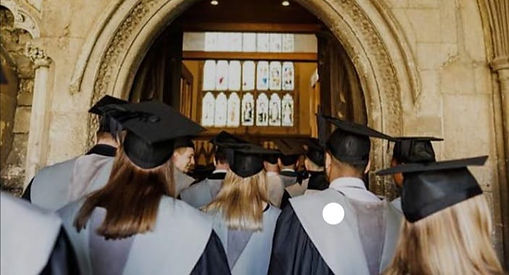Review of Brent Meersman's work!
- Lisakanya Ashley Venna
- May 1, 2023
- 3 min read
Review of the three Meersman pieces
Brent Meersman is an author, journalist, current co-editor of groundUp and from 2013 he has chaired the Cape Town Press Club, a previous writer for the mail & guardian from 2003 to 2016, This is Africa from 2014 to 2018 as well as New Africa Analysis in London, his work has been translated and published abroad. He is also the author of Rattling the cage, which was released in 2021, A childhood Made Up that was released in 2020, Homo Odyssey that he released in 2018, Sun set claws which came out in 2017, 80 Gays around the world released in 2015, Five at noon which was released in 2013 and Reports Before Daybreak to mention a few. He is famously known for his food reviews and cultural commentary. In the first reading ‘Bitten by the food bug’ he shares experiences of exploring multiple culinary scenes, from high-end restaurants to local eateries. He shares the importance of food and how it made a huge positive impact in his career. With Brent being a theatre critic and reviewing 200 shows he only started writing in 2008 about food and he would randomly get approached by strangers showing interest in his work and more often referred to as Munchkin. He later got dispatched for reviewing restaurants in order to grow Mail & Guardian subscribership. He regarded Cape Town as a perfect spot for a restaurant reviewer because that is where he started and went on to become a surged globally.
In the second reading, ‘Confused but content’, Meersman exhibits his unique way of welcoming his audience into his world of reviews. As a commentator, Meersman is known for his in-depth investigation of different points, counting nourishment, society, and culture as well as advertising readers a special perspective. His narrating capacities have contributed essentially to South African news coverage and composing. Meersman’s work offers to diverse readers based on their inclinations. A few individuals need to know almost the nourishment and fair that, whereas others appreciate the social and societal viewpoints he brings into his audits. His composing fashion is locks in and enlightening, giving the audience an understanding of the subject, he covers. Generally, ‘Confused but content’ may be confirmation to Meersman’s capacity to charm his audience with his narrating and smart audits, making him one of South Africa’s best storytellers.
In the third reading. ‘Rethinking the National Arts’ which is a yearly event that showcases artists from all over the continent, where Brent challenges the reader’s mind by taking a different angle on the annual arts Festival held in Grahamstown when writing the article. In the article, he emphasises the stark contrast between the festival’s R30 million budget and the surrounding poverty, as well as the opportunities it gives for marginalized artists and community theatre groups. Meersman ‘s writing style is unconventional for a review on an arts festival, as he shifts his focus and base it on the residents of Grahamstown and the festival’s importance on them as community members. He focuses on the Grahamstown’s inequality and the festival’s impact on the local community as well as its residents, rather than only focusing and reporting on the festivities that everyone is there for and already covering, this is exactly what makes him stand out. Crucial concerns and questions are raised in the article about the role of arts festivals in addressing the responsibility and the social issues they have towards the communities they claim to serve. Meersman’s insightful and engaging writing skills gives courage to the readers to consider the broader implications of such events and their potential to promote progressive values, stimulate creativity, and break down spatial and economic challenges. Overall, ‘Rethinking the National Arts Festival’ is a compelling and thought-provoking piece that challenges conventional views on arts festivals and their impact on society. Meersman’s take on a totally different angle and storytelling techniques makes this piece a must read for anyone interested in the intersection of culture, social, and arts issues.
In conclusion, Brent Meersman’s work speaks for its self, his work proves that he took a path that was less travelled, he viewed stories in a way that some journalists and writers couldn’t , which is exactly what has made him one of the greatest writers there is, he does not focus on the obvious but rather a unique side to each story, his fresh ideas has made him produce nothing but quality reads!



Comments